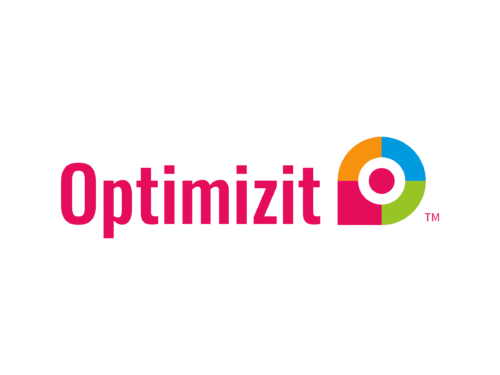Want to see your website at the top of search results? Boosting your site’s search ranking doesn’t have to be complicated. By focusing on a few key areas, you can make a big difference in how your site performs on search engines like Google.
One of the simplest ways to start improving your search ranking is by optimizing your on-page SEO. This includes making sure your titles, headings, and meta descriptions are all in good shape. On-page SEO helps search engines understand what your site is about and why it should rank higher than others.
Another crucial step is to create high-quality content regularly. Search engines love fresh content, and so do visitors. Regular updates with valuable information can turn casual visitors into loyal followers. Plus, it gives you more chances to include keywords that can boost your rankings.
Building quality backlinks is also a game-changer. When other reputable sites link to your content, search engines see your site as more trustworthy. This can significantly improve your rankings.
Finally, don’t overlook the technical side of things. Improving your site’s load speed and making sure it’s mobile-friendly are essential. Slow-loading pages and sites that aren’t optimized for mobile can hurt your rankings.
Each of these strategies plays a crucial role in improving your site’s search ranking. Let’s dive deeper into these simple yet effective ways to boost your site’s performance on search engines.
Optimize Your On-Page SEO
Optimizing your on-page SEO is one of the easiest and most effective ways to boost your search rankings. On-page SEO involves adjusting various elements on your website to make them more attractive to search engines.
First, focus on your titles and meta descriptions. Each page should have a unique title that includes your main keyword. The meta description, which appears under the title in search results, should be compelling and also include your keyword. This helps search engines and users understand what your page is about quickly.
Headers are another important aspect. Use header tags (H1, H2, H3) to structure your content. Your main title should be an H1 tag, which tells search engines this is the main topic of the page. Use H2 and H3 tags for subheadings to break up your content and make it easier to read.
Consider these additional tips for on-page SEO:
– Use Alt Text for Images: Describe your images using alt text with relevant keywords. This helps your images show up in search results and improves overall SEO.
– Internal Linking: Link to other relevant pages on your site. This helps search engines crawl your site better and keeps visitors on your page longer.
– Keyword Placement: Naturally include your main keyword in the first 100 words of your content, and use related keywords throughout the page.
By paying attention to these on-page SEO elements, you make your site more understandable and appealing to search engines, which can lead to higher rankings.
Create High-Quality Content Regularly
Regularly creating high-quality content is crucial for maintaining and improving your site’s search ranking. Search engines favor sites that are updated with fresh, valuable content. Plus, visitors are more likely to return to a site that offers regular updates.
High-quality content should be informative, engaging, and relevant to your audience. Answer common questions, provide solutions to problems, and share insights that your readers will find valuable. This keeps them coming back for more.
Here are some strategies to ensure your content is top-notch:
– Research Your Keywords: Use tools to find keywords relevant to your topic and include them naturally in your content. This helps you rank for terms people are searching for.
– Mix Up Content Types: Don’t just stick to written posts. Include videos, infographics, and podcasts to appeal to different types of visitors.
– Keep It Fresh: Regularly update older posts with new information to keep them relevant. This not only helps with SEO but also shows your audience that you provide up-to-date information.
By maintaining a schedule and consistently providing high-quality content, you can keep both your audience and search engines happy. This ongoing effort will help improve your site’s search ranking and build a loyal following.
Build Quality Backlinks
Building quality backlinks is an effective way to boost your site’s search ranking. When other reputable websites link to your content, search engines view your site as more trustworthy and relevant. This can greatly enhance your rankings.
Start by creating shareable content. Write informative and engaging articles, infographics, or videos that others will want to link to. The more valuable your content, the higher the chances of earning backlinks.
Reaching out to other websites is also important. You can:
– Guest Blog: Offer to write guest posts for reputable sites in your industry. Include links back to your site in your author bio or within the content.
– Build Relationships: Network with influencers and other businesses. Collaborate on projects that can lead to backlinks.
– List Your Site in Directories: Submit your website to reputable online directories and business listings.
Avoid spammy backlink practices like buying links or participating in link schemes. These can harm your site’s reputation and lead to penalties from search engines. Focus on earning high-quality backlinks from trusted sources to improve your search ranking effectively.
Improve Site Load Speed and Mobile Friendliness
Improving your site’s load speed and making it mobile-friendly are critical for better search rankings. Search engines favor websites that load quickly and work well on mobile devices. Slow or clunky sites can lead to high bounce rates, negatively impacting rankings.
First, check your site’s load speed using tools like Google PageSpeed Insights. These tools provide suggestions for speeding up your site. Common improvements include optimizing images, reducing server response time, and minimizing CSS and JavaScript files.
Use a responsive design to make your website mobile-friendly. A responsive design adjusts your site’s layout based on the device being used, whether it’s a desktop, tablet, or smartphone. It ensures that your site looks good and functions well on any device.
Here are more tips to improve load speed and mobile friendliness:
– Enable Browser Caching: Store some of your website’s data on users’ devices so pages load faster on repeat visits.
– Use a Content Delivery Network (CDN): Distribute your site’s files across multiple servers worldwide to speed up delivery to users.
– Optimize Your Hosting: Choose a reliable hosting provider with fast servers and good customer support.
By focusing on load speed and mobile optimization, you create a better visitor experience. This, in turn, signals to search engines that your site is user-friendly and deserving of a higher ranking.
Final Thoughts
Improving your site’s search ranking involves several key strategies. You can get started by optimizing your on-page SEO, regularly creating high-quality content, building quality backlinks, and enhancing your site’s load speed and mobile friendliness. Each of these steps plays a vital role in making your site more appealing to search engines and visitors.
Regularly updating your site and following these simple techniques can help boost its visibility and performance. This ongoing effort will help you achieve better search rankings and attract more visitors, resulting in a more engaging and successful online presence.
Ready to take your website to the next level? Contact Optimizit today to learn how our affordable content marketing and SEO services can help boost your online presence and achieve your business goals!

